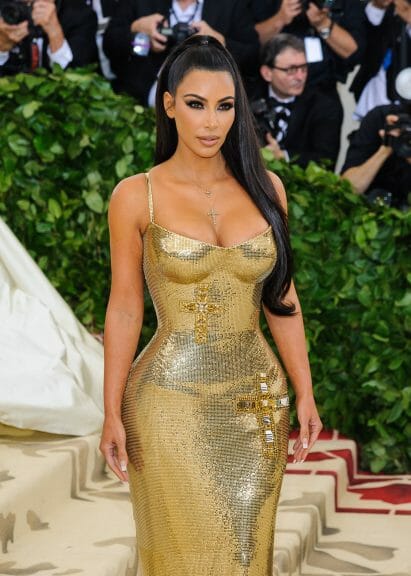Predictions of the rise of the ‘super skinny’ body seemed distant just a few weeks ago. Earlier this month, the headline claiming the return of ‘heroin-chic’ took the internet by storm. Comparing bodies to fashion trends, it is safe to say that the public didn’t take the New York Post’s article lightly.
The Skinny 1990s
Back in the 1990s and early 2000s, the biggest headline was Britney Spears’s new belly button piercing. Newspapers glorified slim celebrities, Kate Winslet and Jessica Simpson were labeled fat, and mainstream stars were promoting eating disorders. Whether they realized their impact is another question. Women everywhere were being brainwashed with unhealthy diet culture, all with the ultimate aim to achieve a slender frame.

The Modern Body Positivity Movement
The current body positivity movement, or the third wave, began around 2012 partly due to the rise of social media. Instagram’s popularity encouraged discussions about beauty standards and embracing bodies of all shapes and sizes began to take flight. Celebrities like Tess Holliday, Kim Kardashian, and Ashley Graham were the front runners of the movement, showcasing their curvier bodies online. More recently, celebs like Lizzo and Jameela Jamil have voiced their support of the changing world of diet culture and body acceptance.

‘Heroin chic’ and the Return to Size 0
Just this year, Kim Kardashian has been sporting a much slimmer frame than she has previously. Having gained the majority of her fame from ‘breaking the internet’, it seems she is moving away from her curvier body. Insiders told media outlets that Kim was ‘rebounding from a very controlling marriage’. Her changing body may have been a result of her split from Kanye West. After predicting the return to size 0 just one month ago, recent headlines have confirmed the worst for the body positivity movement.
On November 2, New York Post published an article titled ‘Bye-bye booty: Heroin chic is back’. The author compared fluctuating fashion trends to bodies and looked at Bella Hadid at Paris Fashion Week. They also did not fail to mention Kim Kardashian’s unbelievable diet in which she shed 16 pounds in three weeks to fit into Marilyn Monroe’s iconic dress, a hint of terrifying diet culture’s past looming in the words’ shadow. Controversially, the article also delved into diabetes drugs, calling them “suddenly trendy” and concluded that as a society, we are obsessed with size.

Influencer Backlash
The misleading and harmful title has led to expected outrage from many celebrities and influencers online. One of the most notable is Jameela Jamil, one of the frontrunners of the body positivity movement. Having suffered from an eating disorder herself, Jameela explained how she has “never fully recovered” from the impact of the dangerous diet culture and the promotion of ultra-thin bodies in the 1990s. She went on to say “we worked so hard and made so much progress and we are not being dragged back. Defund diet culture.” She mocked the ‘chic’ glorification of starvation and wrote “OUR BODIES ARE NOT TRENDS.”
Other influencers have also responded to the article, notably Emily Bispo, known as Bunny Bispo on Instagram. Bunny’s account is centred around body positivity and she shares pictures of her body to normalize all sizes. In her response to the article, she shared a video of images of young girls surrounded by harmful words. In her caption, she wrote a moving statement: “I refuse to chase a body that was never meant for me. I did that once and I refuse to ever do it again. I refuse to let this younger generation be subjected to the same thing that I was as a child.” She ended her post by explaining “You are more than a body. You always have been and you always will be.”
The Guardian Responds
In response to the New York Post, The Guardian shared an article titled ‘The term ‘heroin-chic’ needs to die – even if skinny-worship rages on’. The author explained that ‘thin’ never left but “returned, perhaps as a backlash to the past decade of progress on size inclusivity in the fashion industry”. It highlighted the problematic language, notably the use of ‘heroin chic’. It also spoke about representation as “tokenism” in some cases in a “very performative way”, especially in model shoots and product creation.
The Road Ahead?
Perhaps more positively, TikTok has blocked the search term “heroin chic”. Searches for “thinspo” now lead directly to resources like the National Eating Disorder Association. The vast number of influencers speaking up against the suggestion of a thin ‘trend’ suggests there is hope for the body positivity movement and to allow toxic diet culture to rest.
If ‘heroin chic’ has taught us anything, it’s that commentary on women’s bodies that will never die. Though, it becomes very clear to see that bodies are not ‘trends’, nor are they for performance purposes. The modern-day body positivity movement is very much still alive, and long may it live.














